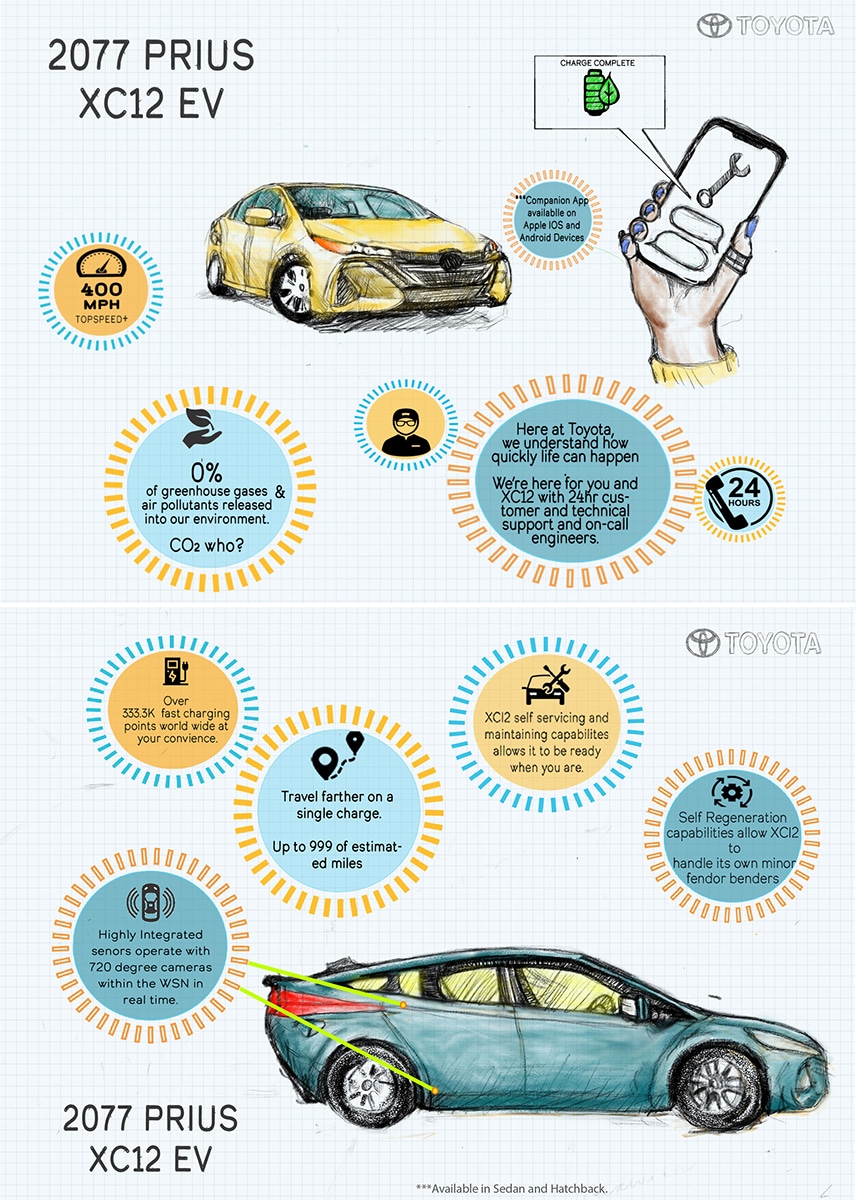GEN 105: Computer Technology
Gain a firm foundation in computer technology
To succeed in today's digital workplace, it's imperative to understand how computers work. In this online computer technology course, you'll gain a foundation in modern computer systems. The course provides a foundation in the computer concepts that every working professional should know. Lectures explore the history and technical evolution of computing, with a focus on the development of hardware, software, and the Internet have developed. Course assignments challenge students to master concepts and relate their studies to relevant professional scenarios, including data representation, programming, and social issues in computing.
 Student work by Bobbi Ellison.
Student work by Bobbi Ellison. Visit the Student Gallery.
About This Course
Project-Based Learning
Writing and research projects deepen your understanding computer hardware and software, the internet, data representation, programming and social issues in computer use.
What Skills Will I Develop?
Students in this course can expect to learn to:
- Define what a computer is and explain the fundamentals of how it works.
- Identify important milestones in the development of computer hardware, software, the Internet, and programming languages.v
- Define and discuss important terms and concepts in computer hardware and software.
- Explain the roles played by system and application software programs.
vDefine and discuss important terms and concepts relating to the Internet, search engines, and web page creation. - Explain how computers use binary number systems to represent numbers, text, and graphic images.
- Explain how software is developed and write a basic program script.
- Research and discuss social issues relating to computer technology.
What Software and Supplies Do I Need?
- Computer with Internet connection.
- MS Word or equivalent program.
Course Outline
Computer Hardware
We'll start things off in this lecture with an overview of the fascinating history of computer hardware and a look at the components of a modern computer system. In the exercise, you'll brainstorm an idea for a new computerized device and sketch a functional description of the device.
Computer Software
In this week's class, we'll discuss the roles played by system software and application software, and take a close look at the software that is essential to design professionals. In the assignment, you'll develop two user personas for your computerized device and chart a basic algorithm for a function it performs.
The Internet
Like so many others worldwide, you are very likely connect to the Internet every day. You use the Internet to send and receive emails or Twitter tweets, to browse or update Web pages, to attend online meetings, to make phone calls, to listen to or view streaming media, to make purchases, and much more. But what really is the Internet? In this lecture, we'll answer that question as well as look at how the Internet works, who invented it, how Web pages are created and displayed, and how search engines work.
Data Representation
In this lecture, you will learn how such diverse data is represented in computer systems using only ones and zeroes. Once you have a good idea of how data is represented, you will take a look at two important processes relating to digital data: encryption and compression.
Computer Programming
In this week's class, you will get an overview of the software development process and learn about some of goals and differences between popular programming languages and how they are used.
Social Issues in Computer Use
This lecture takes a close look at a range of current social issues in the computer and technology field: Why, as other professions have become more open to women, has computer science remained a largely male-dominated arena? What has been the impact of digital typefaces and computer typesetting on the quality of printed materials? And, what does the ability of computers to endlessly replicate digital data mean for the intellectual property rights of the creators of that information?
Frequently Asked Questions (FAQ)
How Do The Courses Work?
Our courses are project-based and instructor-led. In each course you’ll complete a series of lectures, projects, discussions, and critiques designed to stretch your creative skills. Weekly assignment deadlines keep you on track, and with no set-logins or Zoom meetings, you can build your studies around your schedule.
Who Are The Instructors?
Our courses are developed and taught by our industry-leading faculty of creative professionals. This means that you’ll learn in-demand skills, get feedback on your work, and build a portfolio of creative work. View our Student Gallery for featured student projects.
When Can I Start?
Classes start January, April, and August, and this course is completed in a 15-week term. College credit from this course can be applied to a range of Degree and Certificate programs at Sessions College. You can enroll in this course on an individual basis or as part of a program.
Explore our Programs: Bachelor's Degree | Associate Degree | Undergraduate Certificate
How Do I Register?
To register for a program, complete our program application. To register for this course on an individual basis, please contact our admissions team at admissions@sessions.edu. An Admissions Advisor will contact you to setup your enrollment.
| Course Tuition and Fees | |
|---|---|
| Tuition | $510/credit |
| Registration Fee* | $200 |
| Total Course Price | $1730 |
Registration fees are nonrefundable after 5 days from enrollment.
Is Sessions College accredited?
Yes. Since 2001, Sessions College has been accredited by the Distance Education Accrediting Commission (DEAC). The Distance Education Accrediting Commission is listed by the U.S. Department of Education as a recognized accrediting agency and is recognized by the Council for Higher Education Accreditation (CHEA).
